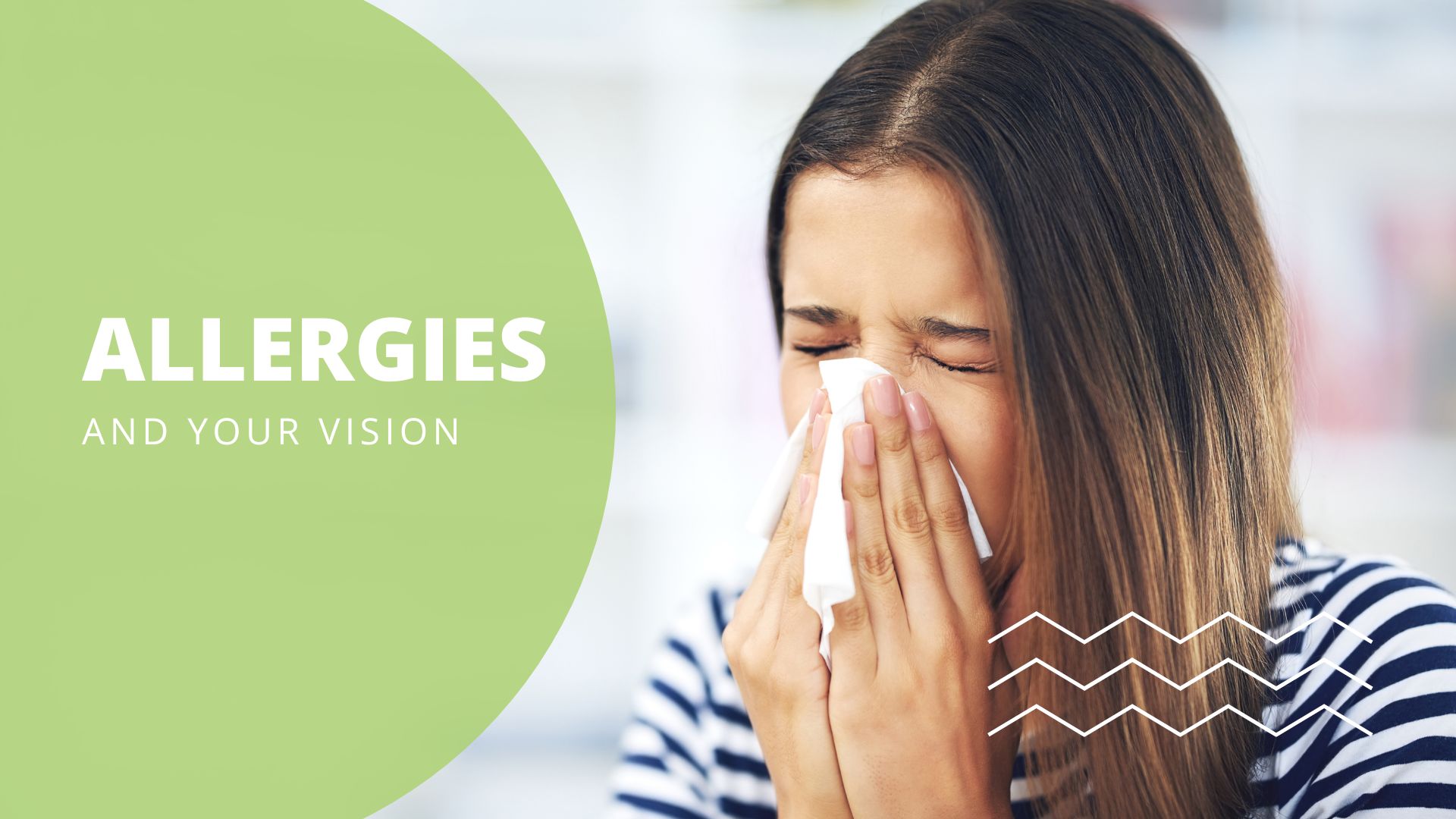As seasons change, so do the challenges for those suffering from allergies, particularly when they affect more than just sneezes and sniffles. Your eyes can also fall victim to the discomfort of allergies, leading to symptoms that disrupt your daily life and blur your vision.
This comprehensive guide will explore the relationship between allergies and eye health, uncovering why your eyes react the way they do and how 1HourEyeDocs can help you find relief. Whether it's springtime pollen or year-round dust mites, understanding this connection is the first step toward clearer, more comfortable vision.
What Are Allergies?
Allergies occur when your immune system reacts to foreign substances called allergens. Common allergens include pollen, dust, pet dander, and certain foods. When exposed to an allergen, your body produces antibodies that release chemicals, causing allergy symptoms.
Causes of Allergies
The primary cause of allergies is the immune system's response to allergens. Genetics also plays a role, as allergies can run in families. Environmental factors, such as exposure to pollutants, can exacerbate allergic reactions.
Seasonal Increases in Allergies
Allergies are often seasonal. For instance, pollen allergies peak in the spring and fall when plants release pollen particles into the air. Dust mites and indoor allergens might worsen in winter when homes are closed more.
How Allergies Affect Your Vision and Eyes
Allergic Eye Reaction
An allergic eye reaction, commonly known as allergic conjunctivitis, occurs when allergens irritate the conjunctiva, the delicate membrane covering the eye and the inside of the eyelid. This reaction triggers various irritating and uncomfortable symptoms.
Allergy Eye Symptoms
Common symptoms of allergic conjunctivitis include:
- Eyes may feel intensely itchy.
- The whites of the eyes can become pink or red.
- Eyelids may puff up and cause "puffy eyes."
- Excessive tear production that leads to watery eyes.
- There might be a clear or slightly thick discharge.
- Eyes may become more sensitive to light.
Can Allergies Cause Vision Problems?
Yes, allergies can cause temporary vision problems. Although allergies primarily cause discomfort and irritation in the eyes, severe allergic reactions can lead to symptoms that impact your vision.
This can happen when there is too much tearing, making it hard to see clearly. Swelling of the eyelids or other parts of the eye can also cause problems with how the eye works. Typically, these vision problems resolve once the allergic reaction is managed, and they are short-lived.
Tips to Manage Eye Allergies
Managing eye allergies involves avoiding allergens and using treatments to alleviate symptoms. Here are some strategies:
- Avoid Allergens: Identify and minimize exposure to the allergens that trigger your symptoms. This could involve staying indoors on high pollen days or using air purifiers to reduce indoor allergens.
- Medications: Over-the-counter or prescription antihistamine eye drops can help reduce itching and redness. Oral antihistamines might also be effective, though they can sometimes dry out the eyes.
- Cold Compresses: Applying a cold compress to your eyes reduces swelling and soothes irritation.
- Artificial Tears: These can help flush out allergens from the eyes and provide lubrication, which relieves discomfort.
- Proper Eyewear: Wearing sunglasses outdoors can help protect your eyes from allergens like pollen.
- Consult an Eye Doctor: If symptoms persist or worsen, it’s essential to consult an eye doctor who can provide targeted treatments or prescribe medications.
How 1HourEyeDocs Can Help With Eye Allergies
Our Montrose clinic can provide effective eye care solutions, making us a valuable resource for individuals with eye allergies. Here’s how we can assist:
- Expert Diagnosis and Treatment: Our skilled eye doctors provide comprehensive eye exams to diagnose and treat eye allergies, differentiating between allergies and other irritation causes.
- Fast Relief: We can quickly provide prescriptions for antihistamine drops or other medications that alleviate eye allergy symptoms.
- Continuous Support: We also offer advice on managing eye allergies and preventing future episodes, including recommendations on creating an allergen-free environment.
Eye allergies are a common yet troublesome aspect of allergic reactions, impacting vision and quality of life. Don’t let irritation blur your day! Visit 1HourEyeDocs for personalized care tailored to your needs. Our team provides fast relief and effective solutions for eye allergies. Schedule your appointment to see the world more clearly.

